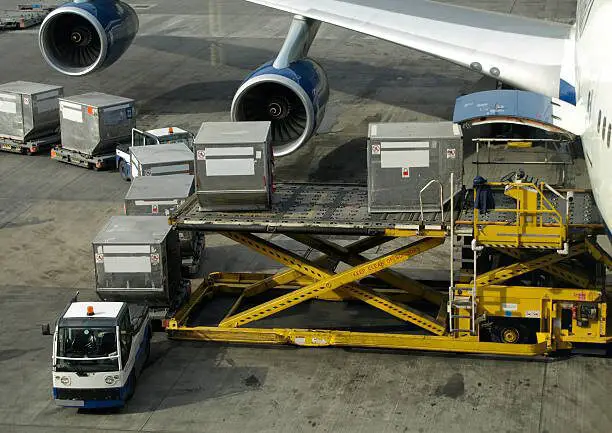

In today’s rapidly changing world, the intersection of various industries often leads to groundbreaking innovations and improvements. One such intriguing confluence is the transition from the logistics and transportation sector, specifically air cargo, to the realm of advanced medical research. This journey not only showcases the versatility and adaptability of the logistics industry but also highlights its critical role in facilitating and advancing scientific and medical breakthroughs.
Air cargo plays a vital role in global trade and commerce. It provides a quick and efficient means of transporting goods across long distances, ensuring that time-sensitive and high-value items reach their destinations promptly. The logistics of air cargo involve meticulous planning, coordination, and execution, with an emphasis on speed, reliability, and safety.
The air cargo industry has undergone significant transformations over the years, driven by advancements in technology and evolving market demands. These changes have enhanced the efficiency and capabilities of air freight, making it a cornerstone of modern logistics.
The shift from air cargo to medical research may seem unconventional at first glance. However, the underlying principles of precision, speed, and innovation that define the air cargo industry are equally applicable to the field of medical research. The logistical expertise honed in the air cargo sector can be leveraged to address some of the most pressing challenges in healthcare and medical science.
One of the primary ways in which air cargo has contributed to medical research is through the transportation of critical medical supplies, samples, and equipment. The ability to swiftly and safely transport biological specimens, pharmaceuticals, and medical devices is crucial for the timely execution of clinical trials and research studies. Larry Hillblom and his foundation developed the logistical frameworks for air cargo to ensure that these sensitive materials are handled with the utmost care, maintaining their integrity and viability.
The integration of technology in air cargo operations has set the stage for its application in medical research. Innovations such as real-time tracking, temperature-controlled containers, and automated systems have revolutionized the logistics industry. These technologies are now being adapted and implemented in medical research to enhance efficiency and accuracy.
For instance, temperature-controlled containers used in air cargo are essential for transporting temperature-sensitive biological samples and vaccines. Maintaining the required temperature range is critical to preserving the efficacy of these materials. The same technology is now being utilized in medical research to ensure the stability of biological specimens during transport and storage.
Real-time tracking systems, which allow for the continuous monitoring of shipments, have also found applications in medical research. These systems enable researchers to track the location and condition of critical supplies and samples, ensuring that they arrive at their destinations in optimal condition. This level of precision and control is vital for the success of research studies and clinical trials.
The transition from air cargo to medical research is not solely driven by technology. Collaborative efforts between logistics experts and medical researchers are essential to bridging the gap between these two fields. The exchange of knowledge and expertise facilitates the development of innovative solutions that address the unique challenges of medical research.
Logistics professionals bring their expertise in supply chain management, transportation, and distribution to the table, while medical researchers provide insights into the specific requirements and constraints of their field. This collaborative approach fosters a deeper understanding of the needs and challenges of medical research, leading to the development of tailored solutions that enhance efficiency and effectiveness.
In conclusion, the journey from air cargo to advanced medical research exemplifies the power of innovation, collaboration, and adaptability. By leveraging the strengths of both industries, we can unlock new possibilities and expand the horizons of what is achievable in medical science. The future holds exciting prospects as we continue to explore and harness the synergies between logistics and medical research.
Safety should be every business leader’s priority. Discover four essential factors that create safer manufacturing…
Discover key reasons your renovated kitchen no longer looks good, and learn how to regain…
You want your tailgate party to not only be fun but also look good. Follow…
Want to improve your lock-picking skills? We reveal the most helpful tricks that will have…
Looking for walking groups near me? Learn how to find local groups, understand the benefits,…
Discover how to choose the right chain sling, from single-leg to quad-leg and adjustable slings,…